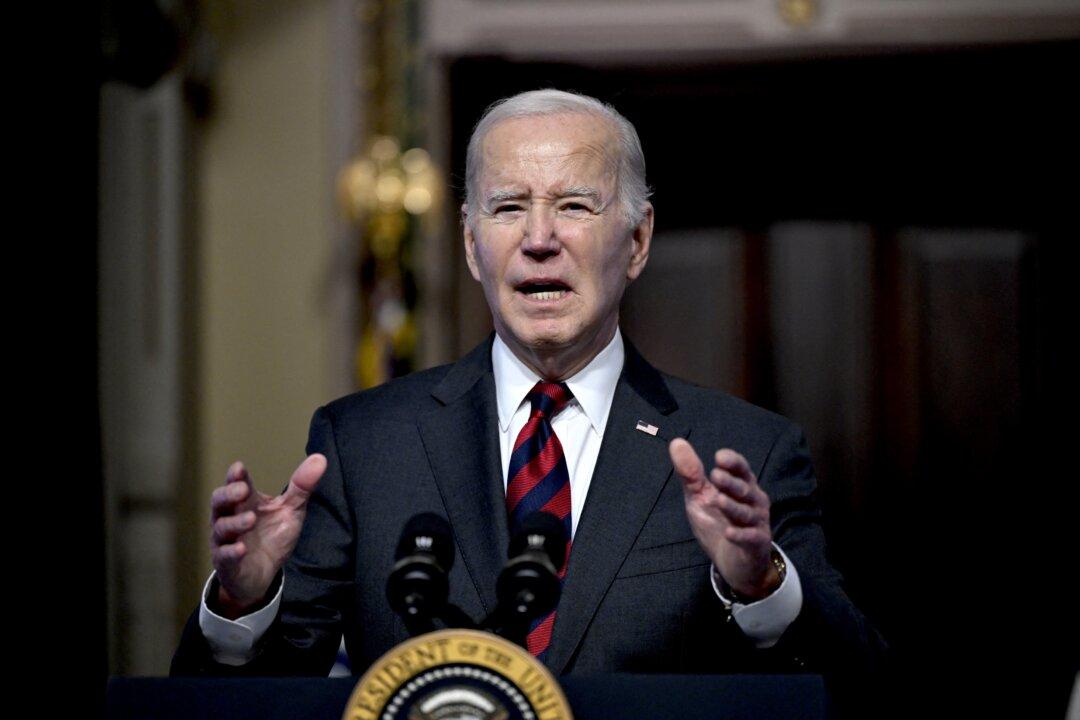President Joe Biden announced the use of a law from the Cold War era to encourage more investment in the production of pharmaceuticals and medical supplies in the United States, according to a White House fact sheet released on Nov. 27.
Speaking alongside Secretary of Transportation Pete Buttigieg on the day of the announcement, the president addressed the changes the administration has made to support the supply chain.





